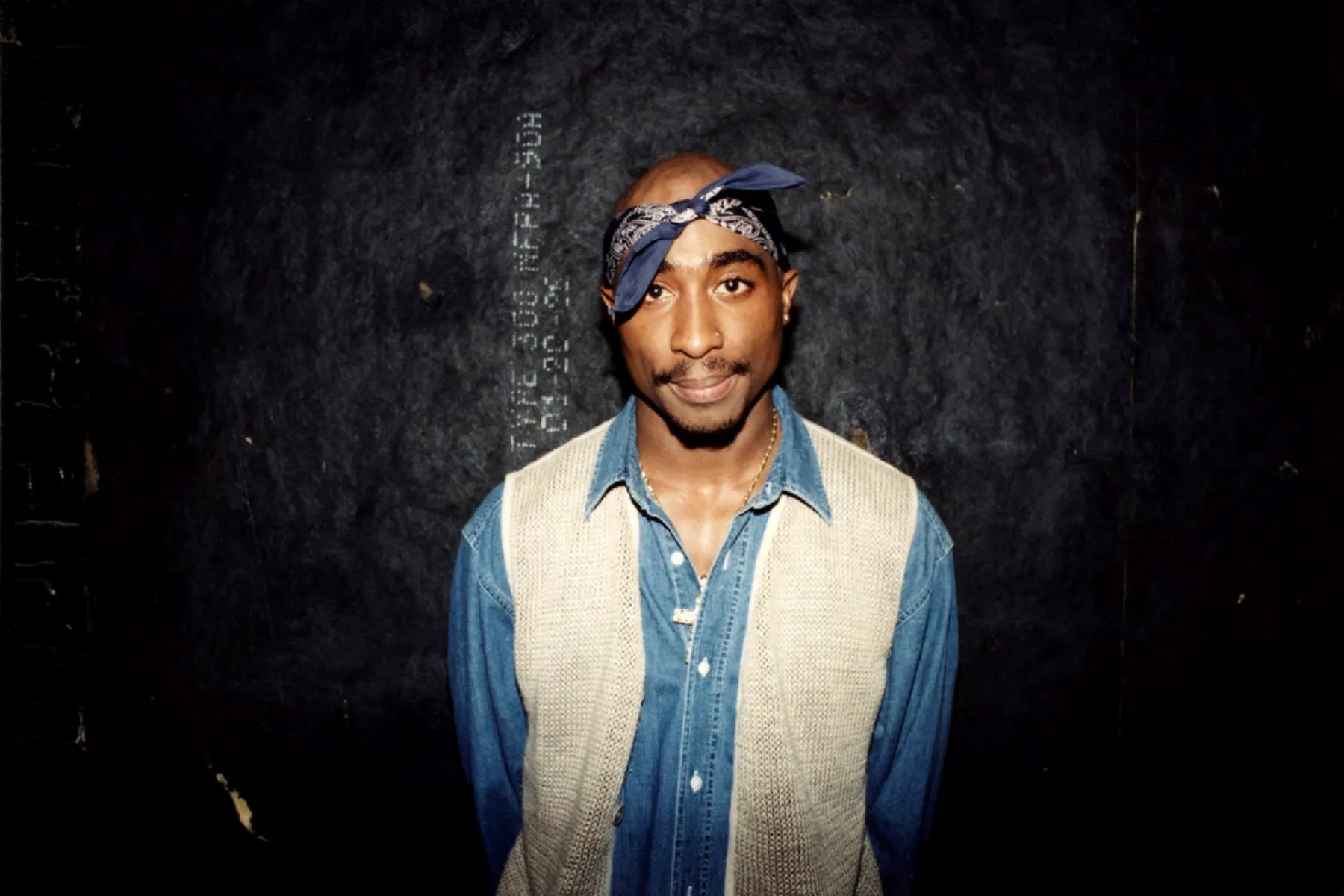Home>Production & Technology>Record Label>What Record Label Was Tupac On


Record Label
What Record Label Was Tupac On
Published: January 25, 2024
Discover the record label that Tupac was signed to and learn about his iconic music career. Explore the story behind his success with this legendary record label.
(Many of the links in this article redirect to a specific reviewed product. Your purchase of these products through affiliate links helps to generate commission for AudioLover.com, at no extra cost. Learn more)
Table of Contents
Introduction
The influence of record labels in the music industry cannot be overstated. These entities play a vital role in discovering, nurturing, promoting, and distributing musical talent. They provide resources, guidance, and connections that can make or break an artist’s career. One such artist who experienced the impact of record labels firsthand was the legendary Tupac Shakur.
Tupac Shakur, often referred to as 2Pac, was an influential rapper, actor, and activist whose music and persona continue to resonate with audiences to this day. Born on June 16, 1971, in East Harlem, New York City, Tupac quickly rose to fame in the 1990s with his thought-provoking lyrics, raw emotion, and captivating performances.
Throughout his career, Tupac was associated with several record labels that played a pivotal role in shaping his artistic journey. These labels not only provided him with a platform to express his unique voice but also contributed to the controversies and conflicts that surrounded his life and untimely demise.
In this article, we will delve into the record labels that Tupac was associated with, focusing on their significance in his career and the impact they had on his musical legacy. We will explore his early record labels, such as Interscope and Jive, and delve into the pivotal moment when he signed with Death Row Records, owned by notorious music executive Suge Knight. We will also discuss the controversies and disputes that arose within these labels, which ultimately cast a shadow over Tupac’s career.
By understanding the record labels that shaped Tupac’s career, we can gain a deeper appreciation for the complexities of the music industry and the profound influence it can have on an artist’s life. So, let us embark on a journey through the record labels that played a significant role in the life of one of hip-hop’s greatest icons – Tupac Shakur.
Biography of Tupac Shakur
Tupac Amaru Shakur, known as Tupac Shakur or 2Pac, was born on June 16, 1971, in East Harlem, New York City. He was raised primarily in the Bronx and later moved to California. Tupac’s mother, Afeni Shakur, was an active member of the Black Panther Party, which influenced his perspective on social justice and racial inequality.
From an early age, Tupac showed a passion for the arts and poetry. He attended the Baltimore School for the Arts, where he studied acting, poetry, jazz, and ballet. It was during this time that he discovered his love for hip-hop music and began pursuing a career as a rapper.
In 1991, Tupac joined the hip-hop group Digital Underground as a backup dancer and rapper. This marked the beginning of his journey into the music industry. He released his debut album, “2Pacalypse Now”, in 1991, which showcased his unique style of storytelling and social commentary.
Tupac’s music often touched on themes of urban life, police brutality, and the struggles faced by marginalized communities. His powerful lyrics and charismatic presence resonated with fans and established him as one of the most influential voices in hip-hop.
However, alongside his rise to fame, Tupac faced numerous legal troubles and personal controversies. He was involved in several altercations and faced accusations of violence, which fueled both his image as a rebellious artist and the media’s scrutiny of his personal life.
Despite the challenges he encountered, Tupac continued to release critically acclaimed albums, including “Strictly 4 My N.I.G.G.A.Z…” and “Me Against the World”. The latter became his first number one album on the Billboard 200, solidifying his status as a commercially successful artist.
Tragically, on September 7, 1996, Tupac was fatally shot in Las Vegas. His death sent shockwaves through the music industry and left millions of fans mourning the loss of a visionary artist. Tupac’s influence, however, has endured long after his passing.
His posthumous releases, including “The Don Killuminati: The 7 Day Theory” and “R U Still Down? (Remember Me)”, further cemented his legacy as a prolific artist. Tupac’s ability to seamlessly blend storytelling, introspection, and activism through his music continues to inspire and resonate with audiences around the world.
As we delve into the record labels that Tupac was associated with, it is important to understand the remarkable life and career of the man behind the music. Tupac’s dedication to his craft, his uncompromising spirit, and his passion for social change set him apart as a true icon of his time.
The Importance of Record Labels in the Music Industry
Record labels play a pivotal role in the music industry, acting as the bridge between artists and audiences. They provide the necessary infrastructure, expertise, and financial support to navigate the complex and competitive landscape of the music business. Here are some key reasons why record labels are crucial for artists:
1. Discovering and Nurturing Talent: Record labels have the resources and networks to identify promising talent and give artists the opportunity to develop their skills. They invest in artists by providing recording studios, producers, and songwriters who can help shape their sound and artistic direction. This support ensures that artists have the necessary guidance and mentorship to reach their full potential.
2. Financial Support and Promotion: Record labels shoulder the financial burden of producing, distributing, and marketing an artist’s music. From recording costs to music video production, tour support, and promotional campaigns, labels take on the financial risk to help artists get their music heard. This allows artists to focus on their craft while labels handle the logistics and expenses of launching a successful career.
3. Industry Connections and Distribution: Record labels have established relationships with streaming platforms, radio stations, and distributors. This network gives artists access to a wide range of promotional avenues and helps them reach a larger audience. Labels also negotiate deals with retailers and online platforms to ensure that an artist’s music is readily available to consumers, both physically and digitally.
4. Branding and Image Development: Record labels assist in shaping an artist’s brand and image. They work closely with artists to create cohesive visual identities, including album artwork, promotional photos, and music videos. Labels also strategize marketing campaigns to build buzz and create a compelling narrative around an artist, helping them stand out in an overcrowded industry.
5. Legal and Business Affairs: The music industry is rife with legal complexities, from intellectual property rights to licensing deals and royalty collection. Record labels have dedicated legal and business affairs teams that handle these intricate matters, ensuring that artists are properly compensated for their work and protecting their interests.
Overall, record labels serve as a backbone for artists, offering support, guidance, and resources that are essential for success in the music industry. While the advent of technology and digital streaming platforms has provided artists with more independence, the expertise and industry connections that labels offer are still invaluable.
As we explore the record labels that influenced Tupac Shakur’s career, it becomes clear that without the backing and infrastructure provided by these labels, his impact on the music world may not have been as profound. The importance of record labels cannot be overstated, both in nurturing emerging talent and guiding established artists toward longevity and success.
Tupac’s Early Record Labels
Before achieving mainstream success, Tupac Shakur was associated with several record labels that played a significant role in shaping his early career. These labels provided him with the platform to showcase his talent and laid the foundation for his future endeavors. Let’s take a closer look at Tupac’s early record labels:
1. Interscope Records: In 1991, Tupac signed with Interscope Records, a major record label known for nurturing emerging talent. Interscope was impressed by Tupac’s lyrical prowess and powerful delivery, and they saw great potential in him. Under Interscope’s guidance, Tupac released his debut album, “2Pacalypse Now.” The album garnered attention for its socially conscious lyrics and established Tupac as a rising star in the hip-hop community.
2. Jive Records: After his initial success with Interscope, Tupac signed with Jive Records in 1993. Jive Records was home to many popular hip-hop acts at the time, and Tupac’s signing was seen as a strategic move to further boost his career. During his time at Jive, Tupac released the critically acclaimed album “Strictly 4 My N.I.G.G.A.Z…”, which featured hit singles like “Keep Ya Head Up” and “I Get Around.” This album showcased Tupac’s versatility as an artist and solidified his rising stardom.
3. Death Row Records: While Interscope and Jive Records played pivotal roles in Tupac’s early career, it was his signing with Death Row Records in 1995 that marked a significant turning point. Death Row Records, founded by Suge Knight, was known for its roster of successful artists and its association with gangsta rap. Tupac’s decision to join the label was fueled by both artistic considerations and financial incentives.
Signing with Death Row Records proved to be a double-edged sword for Tupac. On one hand, it provided him with the opportunity to collaborate with some of the industry’s biggest names, such as Dr. Dre and Snoop Dogg. Together, they released the iconic album “All Eyez on Me,” which became one of Tupac’s most successful and influential works, cementing his status as a hip-hop legend.
On the other hand, Tupac’s affiliation with Death Row Records also exposed him to the various controversies and conflicts that surrounded the label. From legal issues to violent encounters, Tupac’s association with Death Row Records contributed to his tumultuous personal life and added to the narrative of his rebellious image.
Despite the challenges and controversies, Tupac’s early record labels played a crucial role in honing his skills and positioning him as an artist to watch. The foundation laid during his time with Interscope and Jive Records allowed him to make a significant impact in the music industry, while his collaboration with Death Row Records brought his career to new heights.
In the next section, we will explore the circumstances that led to Tupac signing with Death Row Records and the manifold impact it had on both his career and personal life.
Signing with Death Row Records
One of the most significant milestones in Tupac Shakur’s career was his signing with Death Row Records in 1995. This decision had a profound impact on his music, personal life, and the trajectory of his legacy. Let’s delve into the circumstances surrounding Tupac’s signing with Death Row Records:
Tupac’s association with Death Row Records began during his time in prison. In 1995, Tupac was serving a sentence for a sexual assault conviction when he caught the attention of Death Row Records’ co-founder, Marion “Suge” Knight. Knight, known for his intimidating persona and successful track record in the music industry, saw great potential in Tupac and made it a priority to sign him to the label.
While still incarcerated, Tupac agreed to sign with Death Row Records. The terms of the deal not only secured his release from prison but also ensured that he would release three albums under the label. This agreement marked a turning point for Tupac’s career, as he now had the backing of a powerful and influential record label.
The first album Tupac released under Death Row Records was the iconic “All Eyez on Me” in 1996. This double-disc album showcased Tupac’s raw talent, lyrical genius, and ability to seamlessly blend social commentary with catchy and provocative beats. “All Eyez on Me” received critical acclaim, commercial success, and solidified Tupac’s status as one of the greatest rappers of all time.
However, Tupac’s signing with Death Row Records also came with its fair share of controversies. The label, led by Suge Knight, had a notorious reputation for its gangsta rap image, affiliations with the East Coast-West Coast hip-hop feud, and alleged involvement in criminal activities. Tupac’s association with Death Row Records further intensified the already intense rivalry between West Coast and East Coast rap scenes, culminating in the tragic deaths of Tupac and his East Coast counterpart, The Notorious B.I.G.
Aside from the controversies, Tupac’s time with Death Row Records also allowed him to collaborate with some of the industry’s biggest names, including Dr. Dre, Snoop Dogg, and Tha Dogg Pound. Together, they created timeless hits that showcased Tupac’s versatility and showcased his ability to convey emotions and messages through his music.
Although Tupac’s tenure at Death Row Records was cut short due to his untimely death in September 1996, the impact of his time with the label cannot be overstated. His association with Death Row Records further solidified his status as a cultural icon and brought his music to a wider audience. His work with the label remains an integral part of his legacy and continues to inspire new generations of artists.
In the following section, we will explore the controversies and disputes that surrounded Tupac’s record labels, shedding light on the challenging landscape he navigated during his career.
Controversy Surrounding Tupac’s Record Labels
Tupac Shakur’s career was marred by various controversies and disputes surrounding his record labels. The volatile nature of the music industry, combined with the intense rivalries and personal clashes, contributed to the challenges that Tupac faced throughout his career. Let’s delve into some of the notable controversies surrounding Tupac’s record labels:
1. East Coast-West Coast Feud: One of the most infamous and tragic controversies in hip-hop history was the East Coast-West Coast feud. The rivalry between artists from these two regions, primarily represented by Death Row Records (West Coast) and Bad Boy Records (East Coast), escalated to the point of violence and led to Tupac’s and The Notorious B.I.G.’s untimely deaths. Tupac’s association with Death Row Records placed him at the center of this contentious rivalry, fueling the tensions and adding to the climate of animosity.
2. Legal Troubles: Throughout his career, Tupac faced numerous legal troubles, including arrests and convictions. Some of these legal issues were directly related to his involvement with his record labels. For instance, in 1994, Tupac was charged with assault after an incident involving a concertgoer at a Michigan show. The incident, which resulted in Tupac serving time in prison, highlighted the negative press and legal battles that accompanied his affiliation with Death Row Records.
3. Contractual Disputes and Financial Issues: Like many artists, Tupac found himself embroiled in contractual disputes and financial issues with his record labels. There were allegations of unfair compensation, mismanagement of royalties, and disputes over creative control. These conflicts added stress and strain to Tupac’s already tumultuous career and contributed to his desire for creative freedom and financial independence.
4. Allegations of Industry Manipulation: Tupac, known for his outspoken nature and rebellious spirit, often spoke out against what he perceived as industry manipulation and exploitation. He expressed frustration with the commercialization of rap music and the influence of record labels in shaping artists’ image and message. Tupac’s criticism of the industry further heightened tensions and underscored the power dynamics between artists and their labels.
It is important to recognize that Tupac was not the sole artist affected by these controversies. The music industry, particularly during that era, was a hotbed of rivalries, legal battles, and conflicts of interest. The controversies surrounding Tupac’s record labels were part of a larger, more complex web of challenges that artists of that time faced.
Despite the controversies and disputes, Tupac’s legacy and impact on the music world remain undeniable. His powerful lyrics, activism, and authenticity touched the lives of countless fans and continue to inspire artists today. It is a testament to Tupac’s resilience and talent that he was able to create such enduring music amidst the turmoil of the industry.
In the next section, we will explore the influence of Tupac’s record labels on his career, discussing how they shaped his artistic development and contributed to his lasting legacy.
Influence of Tupac’s Record Labels on His Career
Tupac Shakur’s career was profoundly influenced by the record labels he was associated with. These labels played a significant role in shaping his artistic development, amplifying his impact, and contributing to his enduring legacy. Let’s explore the influence of Tupac’s record labels on his career:
1. Interscope Records and Jive Records: Tupac’s early record labels, Interscope and Jive Records, provided him with the opportunity to release his initial albums and establish himself as a rising star in the hip-hop scene. They recognized his talent, supported his creative vision, and assisted in promoting his music to a wider audience. Through these labels, Tupac gained valuable exposure and laid the foundation for his future success.
2. Death Row Records: The signing with Death Row Records marked a turning point in Tupac’s career. The label, known for its affiliations with gangsta rap and its powerful roster of artists, provided Tupac with a platform to collaborate with industry heavyweights and access a larger audience. Working closely with Death Row Records, Tupac released his iconic album “All Eyez on Me,” which solidified his status as one of the greatest rappers of all time.
3. Artistic Freedom and Creative Collaboration: Tupac’s record labels, particularly Death Row Records, afforded him a level of artistic freedom and creative collaboration that was crucial to his growth as an artist. The label’s support allowed Tupac to experiment with different sounds, work with renowned producers like Dr. Dre, and collaborate with fellow talented artists such as Snoop Dogg. These opportunities pushed Tupac’s artistic boundaries, resulting in groundbreaking music that resonated with a generation.
4. Controversial Image and Marketing: Tupac’s record labels played a role in shaping his image and marketing strategy. The association with Death Row Records, which embraced a gangsta rap persona, added to Tupac’s rebellious image and contributed to his appeal among fans who resonated with his raw and unapologetic lyrics. The controversial nature of his image, fueled by the labels’ marketing tactics, garnered attention and made Tupac a polarizing figure within the industry.
5. Legacy and Posthumous Releases: Following Tupac’s tragic death, his record labels continued to release posthumous albums, keeping his music alive and introducing his work to new generations. These releases, carefully curated and managed by the labels, further solidified Tupac’s legacy as an influential and timeless artist, maintaining his impact on the music industry long after his passing.
The influence of Tupac’s record labels on his career cannot be underestimated. From providing platforms for his early successes to shaping his artistic direction and leaving an indelible mark on his legacy, these labels played a vital role in his journey. Through their support, marketing strategies, and collaborations, Tupac’s record labels helped to elevate his career and ensure that his music continues to resonate with audiences worldwide.
In the final section, we will conclude our exploration of Tupac’s record label journey and reflect on the lasting impact of his career.
Conclusion
Tupac Shakur’s career was intimately intertwined with his record label affiliations, from his early days at Interscope and Jive Records to his pivotal signing with Death Row Records. These labels played a crucial role in shaping Tupac’s artistic development, promoting his music, and guiding his career trajectory. The controversies, legal battles, and rivalries that surrounded Tupac’s record labels further added to the complex narrative of his life and legacy.
Through his record labels, Tupac was able to reach a broader audience and collaborate with some of the industry’s most influential artists. His early labels, Interscope and Jive Records, provided a platform for him to establish himself as an emerging talent in the rap game. Later, his signing with Death Row Records elevated his status to iconic proportions, resulting in the release of the highly acclaimed album “All Eyez on Me” and further solidifying his place in music history.
The influence of Tupac’s record labels extended beyond his immediate career. Even after his untimely death, his record labels continued to release posthumous albums, keeping his music alive and introducing his work to new generations. The enduring legacy of Tupac’s music and message is a testament to the impact of his record label affiliations.
However, it is important to acknowledge the controversies and challenges that emerged within these labels. The East Coast-West Coast feud, legal troubles, and contractual disputes brought both triumphs and tribulations to Tupac’s career. They shaped his image, tested his resolve, and contributed to the tragic circumstances that ultimately cut his journey short.
Tupac Shakur’s story serves as a reminder of the power dynamics and complexities within the music industry. The influence of record labels, while instrumental in an artist’s career, can sometimes come with a cost. Tupac’s experiences with his record labels showcase the delicate balance between artistic freedom, personal struggles, and commercial success.
Nonetheless, Tupac’s impact on the music industry and popular culture cannot be understated. His powerful lyrics, unapologetic activism, and raw authenticity continue to inspire and resonate with people around the world. Through his music, Tupac captured the essence of his time and left an indelible mark on hip-hop and beyond.
In conclusion, Tupac Shakur’s journey through various record labels reflects the complex intertwining of artistry, industry influence, and personal struggle. His record label affiliations propelled his career and contributed to his lasting legacy, showcasing the profound impact that record labels can have on an artist’s path to success.











